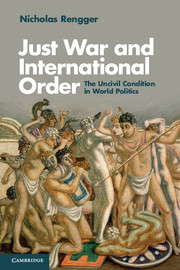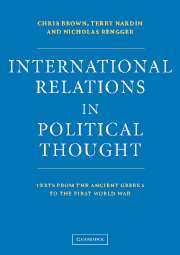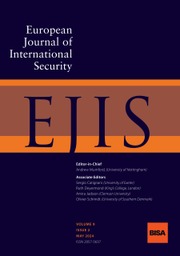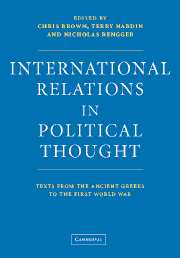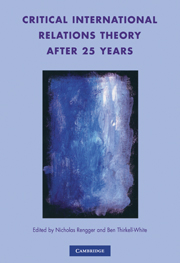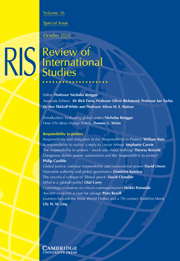Just War and International Order
At the opening of the twenty-first century, while obviously the world is still struggling with violence and conflict, many commentators argue that there are many reasons for supposing that restrictions on the use of force are growing. The establishment of the International Criminal Court, the growing sophistication of international humanitarian law and the 'rebirth' of the just war tradition over the last fifty years are all taken as signs of this trend. This book argues that, on the contrary, the just war tradition, allied to a historically powerful and increasingly dominant conception of politics in general, is complicit with an expansion of the grounds of supposedly legitimate force, rather than a restriction of it. In offering a critique of this trajectory, 'Just War and International Order' also seeks to illuminate a worrying trend for international order more generally and consider what, if any, alternative there might be to it.
- Challenges most received accounts of the character of the 'renaissance' of just war writing - explicating and tracing the relationship to modern social imaginaries of the use of force more generally
- Demonstrates how the renaissance of the just war tradition has paved the way for the expansion of the use of force, rather than its restriction
- Contributes to our understanding of the general issues at stake in contemporary discussions of the 'shape' of world order
Reviews & endorsements
"A literate and persuasive account in the context of just war and intervention of how reason coupled with good intentions can unwittingly help expand state authority and the use of force at home and abroad. Rengger's arguments also show how historically informed reason coupled with a deeper understanding of community can provide compelling arguments for restraint."
Richard Ned Lebow, Professor of International Political Theory, King's College London
"Rengger is a prominent figure in the field of International Political Theory, and this book, which is the product of his long-term engagement with the just war tradition and the political philosophy of Michael Oakeshott, provokes scholars to think in new ways about the relation between military conflict and the normative foundations of international political life. It is a landmark text; insightful, daring, and a pleasure to read."
Cian O'Driscoll, Lecturer in Politics, University of Glasgow
"Rengger’s remarkable fusion of political philosophy and international relations theory yields a potent critique of recent dreams of creating a better world by ethically grounded force. His analysis of how disastrous good intentions inspired by the current rhetoric of universal justice and human rights may prove is indispensable for understanding what is sometimes described as the post-Westphalian world order."
Noël O’Sullivan, Research Professor of Political Philosophy, University of Hull
"Harnessing an impressive array of literatures across the fields of political theory, international relations and international legal theories, political theology and the history of warfare, Nicholas Rengger has written a subtle set of arguments against recent and contemporary practices of moral interventionism … this book stands out for its philosophical sophistication, its singular use of intellectual history and the measured consistency of its own argument."
Richard Beardsworth, International Affairs
"This penetrating analysis … argues that the revival of just war thinking after WWII has helped to expand rather than constrain, the use of force in international relations … Recommended. Graduate, research, and professional collections."
M. Amstutz, Choice
Product details
May 2013Paperback
9781107644748
220 pages
226 × 152 × 18 mm
0.36kg
Available
Table of Contents
- Introduction
- 1. Disordered world
- 2. War music: social imaginaries of war in the modern age
- 3. Just war: ambiguous tradition
- 4. Force for good?
- 5. Supreme emergency
- Epilogue: a choice not a destiny.

